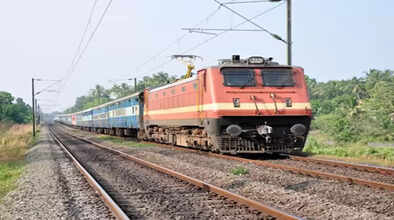Why is there an extra charge of ₹20 on AC ticket and ₹10 on non-AC ticket? Railway Minister gave the answer..

Railway Minister Ashwini Vaishnav has given clarification in Parliament on the question raised regarding the extra charge levied on UPI and other digital payments for online train ticket booking. The minister said that a 'convenience fee' of Rs 20 on AC tickets and Rs 10 on non-AC tickets is charged to meet the expenses incurred in running and upgrading IRCTC's digital system.
In Rajya Sabha, MP Sanjay Singh had raised the question that if the government is promoting a cashless economy, then why is an extra charge of Rs 20 for AC tickets and Rs 10 for non-AC being taken on UPI or other digital payments? He said that this charge can discourage digital payment.
87 percent of reserved tickets are booked online
In a written reply, the Railway Minister said that IRCTC's online ticketing system is a passenger-friendly facility, which costs a lot to run, upgrade, and keep safe. Due to this system, passengers save the hassle and expense of going to the reservation counter. He said that today, 87 percent of reserved tickets are booked online, which shows its popularity and convenience. According to the minister, this charge is very nominal and is taken only to cover operational expenses, not as a tax on digital payments.
1 lakh tickets will be booked every minute
Let us tell you that Indian Railways is going to upgrade its Passenger Reservation System (PRS) with modern technology. This will increase the ticket booking capacity of the railways by four times. After the upgrade, this system will be able to book one lakh tickets per minute. At present, this capacity is 25,000 tickets per minute. Railway Minister Ashwini Vaishnav told the Parliament that the Railways is completely restructuring the PRS through the Central for Railway Information Systems (CRIS).
Disclaimer: This content has been sourced and edited from News 18 hindi. While we have made modifications for clarity and presentation, the original content belongs to its respective authors and website. We do not claim ownership of the content.

